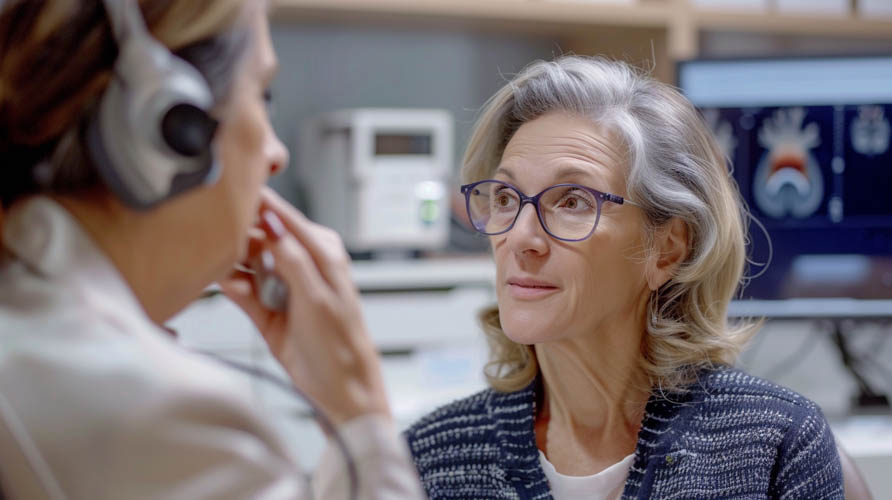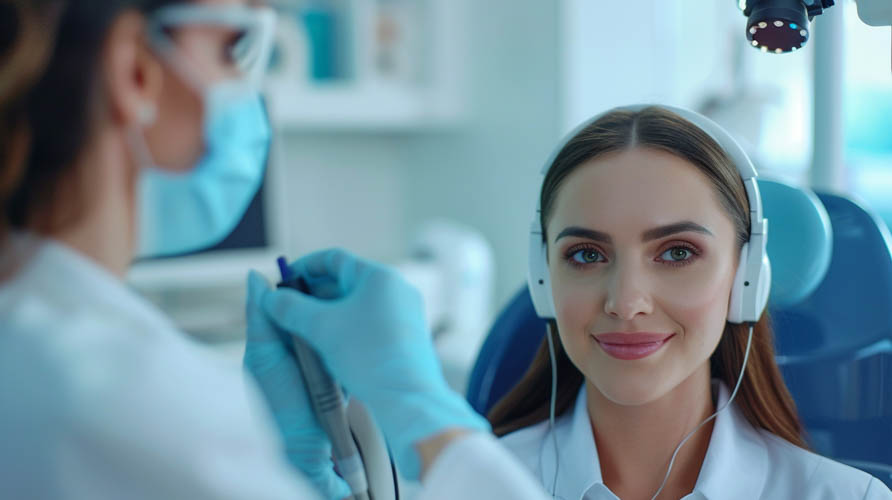Preparing for your adult hearing test doesn’t have to be stressful. Start by understanding the test process: you’ll discuss your medical history, then take a hearing test in a soundproof booth using headphones. List your symptoms, gather your medical history, and avoid loud noises days before. Bring a companion for support and logistics, and ensure you rest well the night before. Follow your audiologist’s pre-test instructions closely. Taking these steps will help ensure accurate results. Learn more to maximise your preparation.
Know the Test Process
Before attending your hearing test, it’s crucial to understand the steps involved in the process. Knowing what to expect can ease any anxiety and help you prepare better. First, you’ll likely start with a conversation with the audiologist. They’ll ask about your medical history, focusing on any ear-related issues. This helps them tailor the test to your specific needs.
Next, you’ll enter a soundproof booth where the actual hearing test takes place. You’ll wear headphones through which various sounds will be played. These sounds will vary in pitch and volume, and you’ll be asked to indicate when you hear them, usually by pressing a button or raising your hand.
Another part of the test might involve bone conduction. A device is placed behind your ear to send vibrations through your skull, bypassing the outer and middle ear to test inner ear function.
List Your Symptoms
Listing your symptoms accurately can help the audiologist diagnose your hearing issues more effectively. When you’re preparing for your hearing test, consider all the different ways hearing loss might be affecting you. The more detailed you are, the easier it will be for the audiologist to understand your situation.
Start by thinking about when you first noticed changes in your hearing. Has it been a gradual decline, or did it happen suddenly? Note any specific situations where you struggle to hear. For example, do you find it difficult to follow conversations in noisy environments, or do you need to turn up the volume on your TV more than before?
Here are a few points you might want to include in your list:
- Frequency of symptoms: How often do you experience difficulties in hearing?
- Specific sounds or voices: Are there particular sounds or voices you have trouble hearing?
- Associated issues: Do you experience ringing in your ears, dizziness, or balance problems?
Gather Medical History
Gathering your medical history is a crucial step in preparing for your hearing test. It provides your audiologist with essential context about your overall health, which can significantly influence your hearing. Start by compiling a list of any past ear infections, surgeries, or injuries you’ve had. This includes details about any hearing problems that run in your family, as genetic factors can play a role.
Don’t forget to mention any medications you’re currently taking or have taken in the past. Some medications are ototoxic, meaning they can harm your hearing, so this information is vital. Additionally, if you have chronic conditions like diabetes or high blood pressure, make sure to include those, as they can impact your hearing health.
Be thorough yet concise. Note any instances of dizziness, balance issues, or ringing in your ears, as these symptoms can be linked to hearing problems. It’s also important to disclose any occupational or recreational noise exposure, as prolonged exposure to loud noises can affect your hearing.
Avoid Loud Noises
In the days leading up to your hearing test, it’s crucial to avoid loud noises to ensure accurate results. Exposing your ears to high decibel levels can temporarily affect your hearing, leading to skewed test outcomes. To help protect your ears and get the most precise assessment possible, take the following precautions:

- Limit Exposure to Noisy Environments: Steer clear of concerts, clubs, and other loud venues. Even everyday situations like heavy traffic or construction sites can be harmful. If you can’t avoid these settings, wear earplugs to reduce noise impact.
- Turn Down the Volume: Whether you’re listening to music, watching TV, or working with power tools, keep the volume at a safe level. Consistently high volumes can cause temporary hearing loss, which might affect your test results.
- Avoid Using Earbuds or Headphones: These devices deliver sound directly into your ear canal and can be particularly harmful at high volumes. Opt for over-the-ear headphones if you must listen to something, and keep the volume low.
Bring a Companion
Having taken steps to protect your hearing, it’s also a good idea to bring a companion to your hearing test appointment. A friend or family member can provide emotional support, which can reduce any anxiety you might feel. They can also help you remember important questions to ask and ensure you understand the audiologist’s instructions or recommendations.
Sometimes, it’s easy to overlook details during medical appointments, especially if you’re feeling nervous. Your companion can take notes, helping you focus on the test itself. They might also share valuable insights since they may have noticed changes in your hearing that you haven’t. This additional perspective can be helpful for the audiologist in assessing your hearing health comprehensively.
Moreover, having someone with you can make the experience less daunting and more comfortable. They can assist with logistics like driving, which is particularly useful if you’re feeling stressed or if the appointment leaves you feeling a bit overwhelmed. Don’t underestimate the value of having a trusted person by your side; their presence can make a significant difference in the overall experience of your hearing test, ensuring you get the most accurate results and appropriate advice.
Rest Well Beforehand
Why is it important to rest well before your hearing test? A good night’s sleep ensures you’re at your best physically and mentally, which is crucial for an accurate hearing assessment. When you’re well-rested, your ability to focus and respond to the test’s auditory cues improves, contributing to more reliable results.
Here are three reasons why resting well beforehand is essential:
- Enhanced Cognitive Function: Sleep helps your brain process and retain information. By getting adequate rest, your cognitive functions, including memory and attention, will be sharper. This is vital when following instructions during the hearing test.
- Reduced Stress and Anxiety: Lack of sleep can increase stress and anxiety levels, which might affect your performance. Being well-rested can help you stay calm and composed, making it easier to handle the test’s various components.
- Improved Physical Well-being: Fatigue can manifest in various physical symptoms like headaches or dizziness, which could interfere with your hearing test. Ensuring you’re well-rested minimises these risks, allowing you to focus solely on the test.
Follow Pre-Test Instructions
To ensure the most accurate results, it’s crucial to follow all pre-test instructions provided by your audiologist. These guidelines are designed to optimise the accuracy of your hearing test, so adhering to them is essential. For example, you might be asked to avoid loud noises for 24 hours before the test. This helps ensure your auditory system is not temporarily compromised.
You may also be instructed to avoid caffeine on the day of the test. Caffeine can increase your heart rate and cause jitteriness, which might affect the test results. Additionally, some medications can influence your hearing. If you’re taking any prescription or over-the-counter medications, inform your audiologist. They might advise you to skip certain medications for a day or two before the test.
Don’t forget the basics: arrive on time and bring any required documentation. This includes previous hearing test results, a list of current medications, and identification. Being organised can make the process smoother and ensure nothing is overlooked.
Lastly, if you wear hearing aids, you might be asked to leave them out for a certain period before the test. Always double-check these specifics with your audiologist. Following these instructions ensures you get the most precise diagnosis possible.



